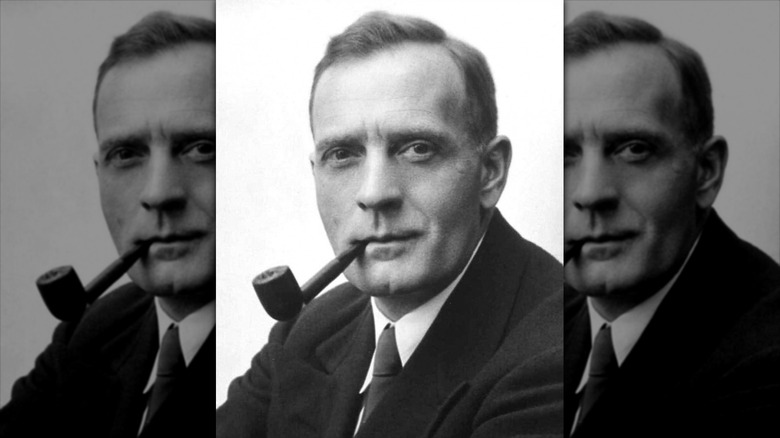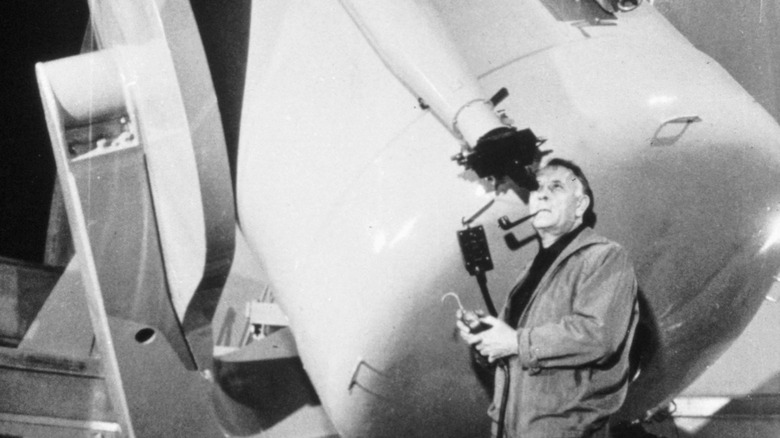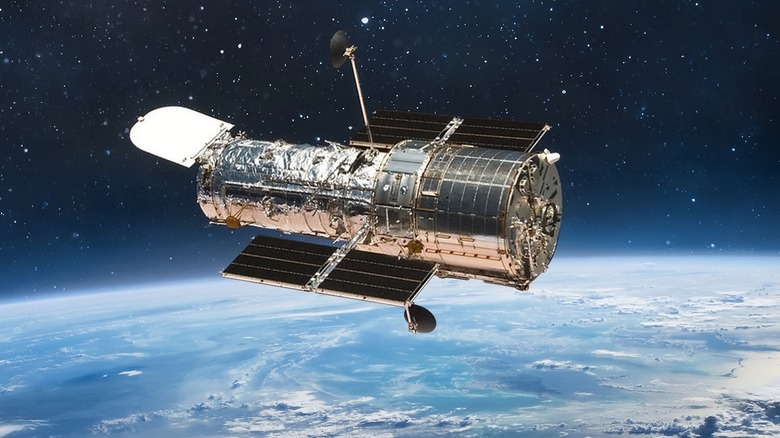Why Edwin Hubble's Contributions To Space Was Not Recognized By The Nobel Prize Committee
Throughout human history, a continuous series of brilliant minds have helped to advance and shape our understanding of our universe. NASA reports that, in 1609, the iconic Galileo Galilei had created his own telescope (though he didn't personally invent the device) and was making groundbreaking observations. Among them, he reported that it was the sun, not Earth, that was the "center" of the universe, and he was among the first people to see the moon in detail in our history.
In 1687, per Britannica, Isaac Newton presented his law of gravitation. Through this work, we could begin to tackle the notion of how apples fall onto the heads of geniuses, but also of the movements of celestial bodies in the sky. Both scientists, and so many more before and since, have been celebrated as some of the finest minds of their — or any other — time. Along with this, of course, tend to come accolades. Newton, History states, became Sir Isaac in 1705, courtesy of Queen Anne.
However, science isn't all about honors, trophies, and egos. Another great mind in the field of astrology, Edwin Hubble, did not receive the prize he deserved from the Nobel Committee. Here's why.
Hubble's remarkable achievements
It's not unusual, of course, for scientific discoveries, inventions, and other breakthroughs to be named after their discoverers or originators, whether officially or commonly. The Hubble Space Telescope, according to NASA, was taken to its new home in space in 1990, and has been beguiling millions with its fantastic imagery ever since. It has seen otherwise-impossible sights at a distance of more than 13.4 billion light years away.
This remarkable scientific tool, of course, is named for Edwin Hubble. As Biography reports, Hubble was a brilliant scientist who completed his studies at the University of Chicago in 1910 at the age of around 21, going on to excel at the prestigious University of Oxford, too. His astronomy studies were followed by his early work in the field, working with the Hooker Telescope at Mount Wilson Observatory.
Until his death in September 1953, Hubble toiled on the projects and subjects he was passionate about. His pioneering work bears his name in a variety of places: Hubble's law, per Space.com, is the concept that galaxies tend to move away from each other as the universe expands, and states that the rate at which they do so varies. While Hubble achieved various accolades for his incredibly significant scientific career, there was one particular honor he wouldn't receive.
A technicality prevented Hubble from winning a Nobel Prize
Edwin Hubble's discovery of moving galaxies, per the APS, was nothing short of revolutionary. Fellow great minds of his time, including Albert Einstein, tended to adhere to a concept the scientific superstar called the "cosmological constant." This supported the idea of a universe that was a great, wide, unmoving nothing, a belief that Hubble blew wide open. In doing so, he change the course of astronomical study forever, and made himself something of a celebrity in the process.
Among the honors and prizes Hubble received in his lifetime, per The Franklin Institute, was the Franklin Medal in Physics, which he was awarded in 1939. However, another prestigious prize, the Nobel Prize in Physics, eluded him.
Per the APS, astronomy was not officially deemed an area of physics during the time of Hubble's breakthroughs. The European Space Agency reports that it was a long-held dream of Hubble's to achieve the prize, but astronomy was its own branch of science at the time, and so his remarkable work was not considered to have been physics in the eyes of the Nobel Committee.
It would become so later, however. In October 2011, NASA reports, astronomer and professor Adam Reiss et al received the 2011 Nobel Prize in Physics for their research in investigating the pace of the universe's expansion. What very special piece of technology did they use in this revolutionary new work? The Hubble Space Telescope, of course.


